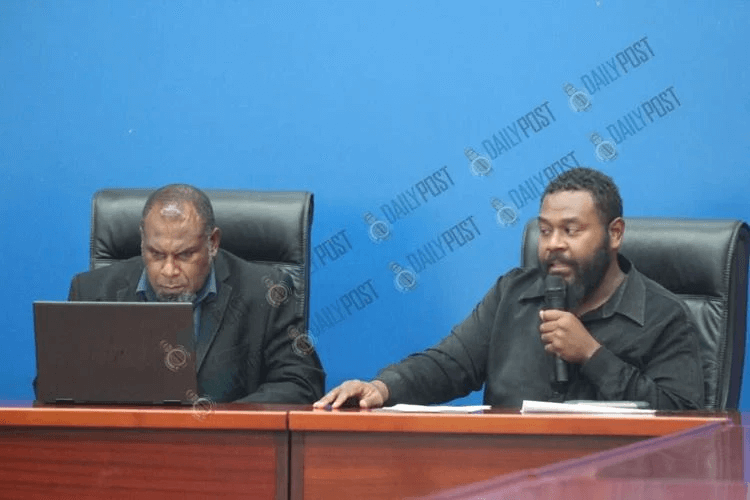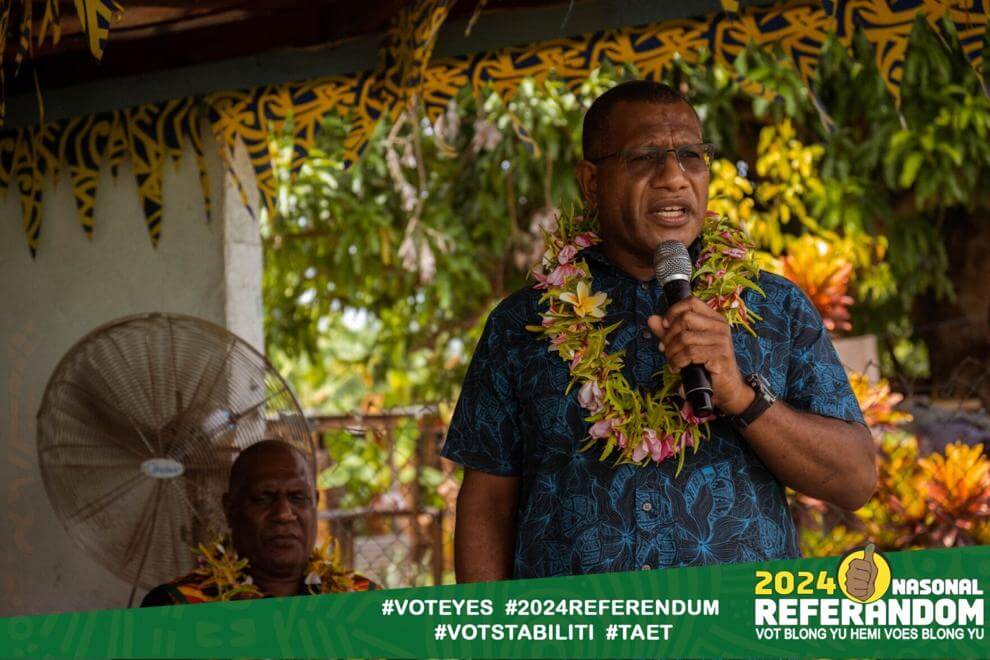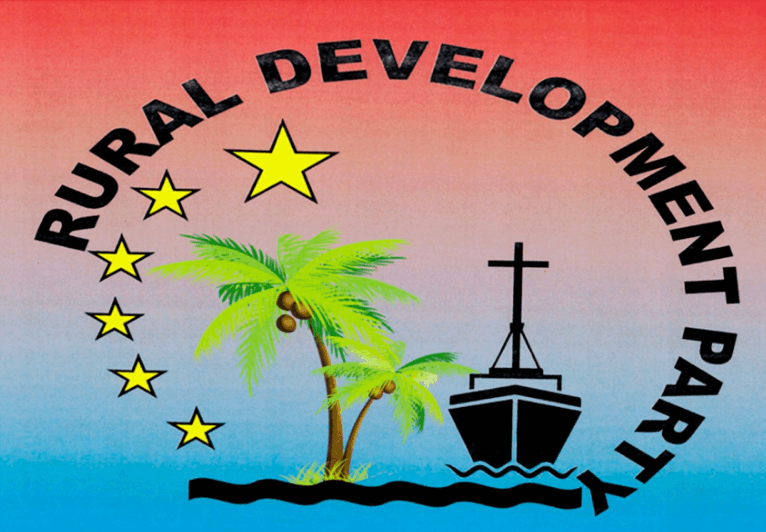By Doddy Morris.

The amendments to be made to the Constitution on 29 May 2024, particularly Articles 17A and 17B, in the National Referendum will not stop political instability.
As a matter of public interest, this was relayed by Mr. Junior Joe Natuman, the Principal State Counsel in the State Law Office (SLO), on Friday 22nd March 2024 during the National Referendum Communication team training program held at the Convention Centre.
“These amendments will not stop instability; the changes of the Government are an expression of democracy for the government to change. But it will make it difficult to change the Government, if you want to change the government you have to convince your political party, not individually, so this is the effect of 17A and 17B,” he said.
Natuman said there are positive and negative sides of these changes, and it is democratic to give the right to the people to vote on which one they think is best, whether stability or instability.
However, the main purpose of the amendments of Article 17A of the Constitution is to ensure that Members of Parliament (MPs) continue to remain members of their respective political parties for the full term of Parliament.
It states that the President of a political party must inform the Speaker of Parliament, within 14 days after an MP: resigns from his or her political party; or is terminated as a member of that political party because he or she no longer supports that political party.
The Speaker of Parliament after being informed by the President of that political party, must, within 7 days, declare the seat of that MP vacant.
“Subsection 5 stated that the article 17A, will apply despite the precautions of sub article 5.1 of the constitution. Sub article 5 (1) of the Constitution talks about the fundamental rights, there will be plenty people talks about fundamental rights stating it is not good in the sense that it affects their right, to clear this up, the rights that will be affected inside 5 (1) is basically the right of freedom of expression and movement, particularly for the MPs alone in the Parliament house,” Mr. Natuman explained.
“Outside the parliament they can express themselves us they want, but inside parliament their right is limited. Perhaps some will be asking how it is defeated, it is defeated in the sense that currently he is stuck with his political party. If the MP wants to get out of the political party, he will get risk losing his seat, this is where his rights are limited.”
On the other hand, the main purpose of Article 17B of the Constitution is to ensure that an independent member, and the only member representing a political party, and (c) a member representing a custom movement are affiliated with a political party for the full term of Parliament.
These MPs must inform the Speaker of Parliament within 3 months of being elected and after the first sitting of Parliament, which political party he or she affiliates with. The Speaker must declare the seat of any of these MPs vacant if that member fails to inform the Speaker of Parliament which political party he or she affiliates with.
Mr. Natuman explained that if a political party member affiliates with another political party and, during the term of the parliament, no longer supports the Party, how it will be determined that the member no longer supports the political party with which they were affiliated will be stated in the constitution of that MP’s political party.
“Your political party constitution will say how and when an independent member who affiliates with you no longer supports your political party,” he said.
“17B also you will see it also apply despite the provisions of 5.1 of freedoms, so it will affect the freedom of independent candidate with members of custom movement for them to freely express themselves since they are now stuck with political part. When a political party says move like this they have to move like that.”
He added that the intention behind the changes of 17A and 17B is to get rid of the movement of the individual’s MPs.
“As you saw, last year we have three Prime Minister’s changes was due to the movement of MPs, even they came out of the political party, the party did not move but the individual MP moved,” Natuman said.
“To stop this, the Government decided for us to relegate that Members of Parliament representing political parties to remain in the political party the whole term. If someone wants to convince someone to move, you have to convince his party to move.”
With the proposed amendments to the Constitution, if voted in and gazetted, 17A will be effective automatically while 17B will take three months.
Source: dailypost.vu


